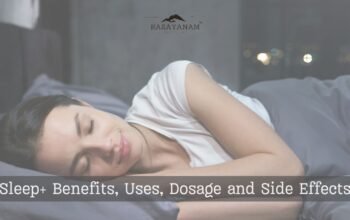Everyone forgets things from time to time. How many times did you lose your car keys or forgot the name of the person you had just met? Some extent of memory problems and a slight decrease in other thinking skills are a fairly common part of aging. Some memory problems are the result of treatable conditions. However, there is a big difference between normal memory changes and the memory loss associated with Alzheimer’s and related disorders… If you have memory problems, talk to your doctor about the diagnosis and proper treatment.
Memory loss and its Association with aging
Normal age-related memory loss doesn’t stop you from living a full and productive life. For example, you may sometimes forget a person’s name, but you will remember it later. You might wear glasses sometimes, or you may need to create lists more often than in the past to remember appointments or tasks. These changes in memory are usually manageable and don’t interfere with your ability to work, live independently, or maintain a social life.
Did anyone tell you that dementia itself is an umbrella term? It includes a set of different symptoms added with cognitive decline and first gradual and then rapid changes in behavior.
An average of 36 people die daily due to dementia, and 64.5% of deaths due to Dementia are of female patients. (Source: Dementia Australia)
When should one be alarmed?
The word “Dementia” is a broader term used to describe a range of symptoms, including impaired memory, reasoning, judgment, speech, and other thinking skills. Dementia usually begins gradually, deteriorating over time and affecting a person’s skills at work, social interactions, and relationships.
Memory loss that disrupts your life is often one of the earliest or most Recognizable Symptoms among those suffering from dementia. Other early symptoms may include:
- Asking the same questions repeatedly
- Forgetting common words when speaking
- Using mixed words – for example, the word “bed” instead of “table.”
- Taking longer to complete familiar tasks, such as following a recipe
- Improper placement of objects in inappropriate places, such as inserting a wallet in a kitchen drawer
- Feeling lost when walking or driving in a familiar area
- Having mood or behavior changes for no apparent reason
Diseases that cause progressive brain damage – and subsequently lead to dementia – include:
- Frontotemporal dementia
- Vascular dementia
- Alzheimer’s disease (a most common Cause of Dementia)
- Dementia with Lewy bodies
The pathological process (pathology) of each of these conditions is slightly different. Memory error is not always the first sign, and the type of memory problem varies. There is also more than one type of dementia affecting a person, known commonly as mixed dementia. When such a thing happens, one has to take care of their mental health when dealing with various symptoms affecting their physical health. This is where they also need to start Eating healthy.
Usually, memory loss does not progress much and does not develop the spectrum of symptoms associated with Dementia.
What should one visit the doctor?
If you are worried about memory loss, see your doctor. There are tests to determine the degree of Memory corruption and the effects it has. Your doctor will likely ask you questions. It is good to have a family member or friend with you to answer some questions. Questions may Include:
- When did you start facing problems with Memory?
- What medications, including prescription, over-the-counter, and dietary supplements, are you taking, and in what doses?
- Have you started a new drug recently?
- What tasks do you find difficult?
- What have you done to address your memory problems?
- How much alcohol do you consume?
- Have you recently had an accident, fallen or injured your head?
- Have you been sick recently?
- Do you feel sad, depressed, or anxious?
- Have you recently suffered a major loss, a big change, or a stressful event in your life?
In addition to the General Physical exam, your doctor will likely perform question-and-answer tests to assess your memory and other thinking skills. He may also order blood tests and brain imaging tests which can help identify reversible causes of memory problems and dementia-like symptoms. You may need to be referred to a specialist in dementia or memory disorders if you are diagnosed with it, such as a neurologist, psychiatrist, psychologist, or geriatrician.
Word of Caution
There are currently several prescription drugs available to safely treat symptoms of the early and middle stages of Alzheimer’s disease. If you or someone you know is diagnosed with dementia, your doctor may recommend that you get one. Watch out for brain training pills, supplements, computer games, or other products that promise to improve memory or prevent brain disorders. It can be dangerous, losing money, or both. They may even interfere with other medical treatments. There is currently no cure or treatment to prevent Alzheimer’s disease or dementia.
Bottom line
When you have to rush your loved one to a doctor owing to Memory Loss, know that you need to be patient with them. Most of what is happening to them is beyond their control. Dementia is not a part of aging. It involves the loss of cognitive functions – thinking, remembering, learning, and reasoning – and behavioral skills to the extent that it compromises the quality of life and human activities. Memory loss, while common, is not the only Symptom of Dementia. People with Dementia can have problems with linguistics, visual perception, or attention. Some people have personality changes as well.
Although there are various forms of dementia, Alzheimer’s disease is the most common in people over 65.
If detected timely, it can actually improve the life of your loved ones.




